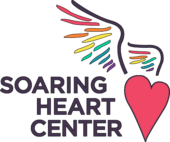
Therapists in Indianapolis, Indiana IN
We are proud to feature top rated therapists in Indianapolis, IN. We encourage you to review each profile to find your best match.

Thania Hernandez
Counselor/Therapist, MA
Dr. Kimberly E. Johnson
Psychologist, PsyD, HSPP, APIT
Dr. Ruth Viehoff
Psychologist, PsyD, HSPP
Rick Rodgers
Counselor/Therapist, MSW, LCSW, CADC, CCTP, RYT 500
Mackenzie Moran
Licensed Mental Health Counselor, LMHCA
Andrea Barbour
Marriage and Family Therapist, MA, LMFT, PhD(ABD)
Dr. Beth L. Fineberg
Psychologist, Ph.D.
Catriona (Cat) Schmidt
Counselor/Therapist, LMHC, Licensed Mental Health Counselor, NCC, National Certified Counselor
Dorit Tomandl
Marriage and Family Therapist, LMFT
Soaring Heart Center
Licensed Clinical Social Worker
Heartland Healing Counseling & Consultation
Licensed Clinical Social Worker, LCSW, LISW-S, LMHC, LMFT
Fabienne Alexandre
Counselor/Therapist, MSW












